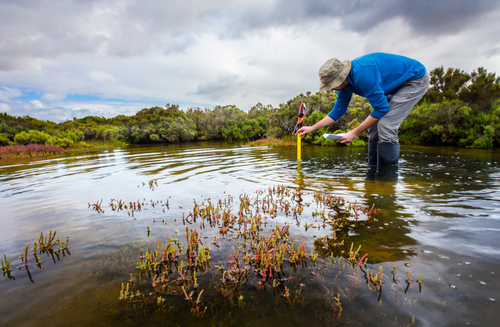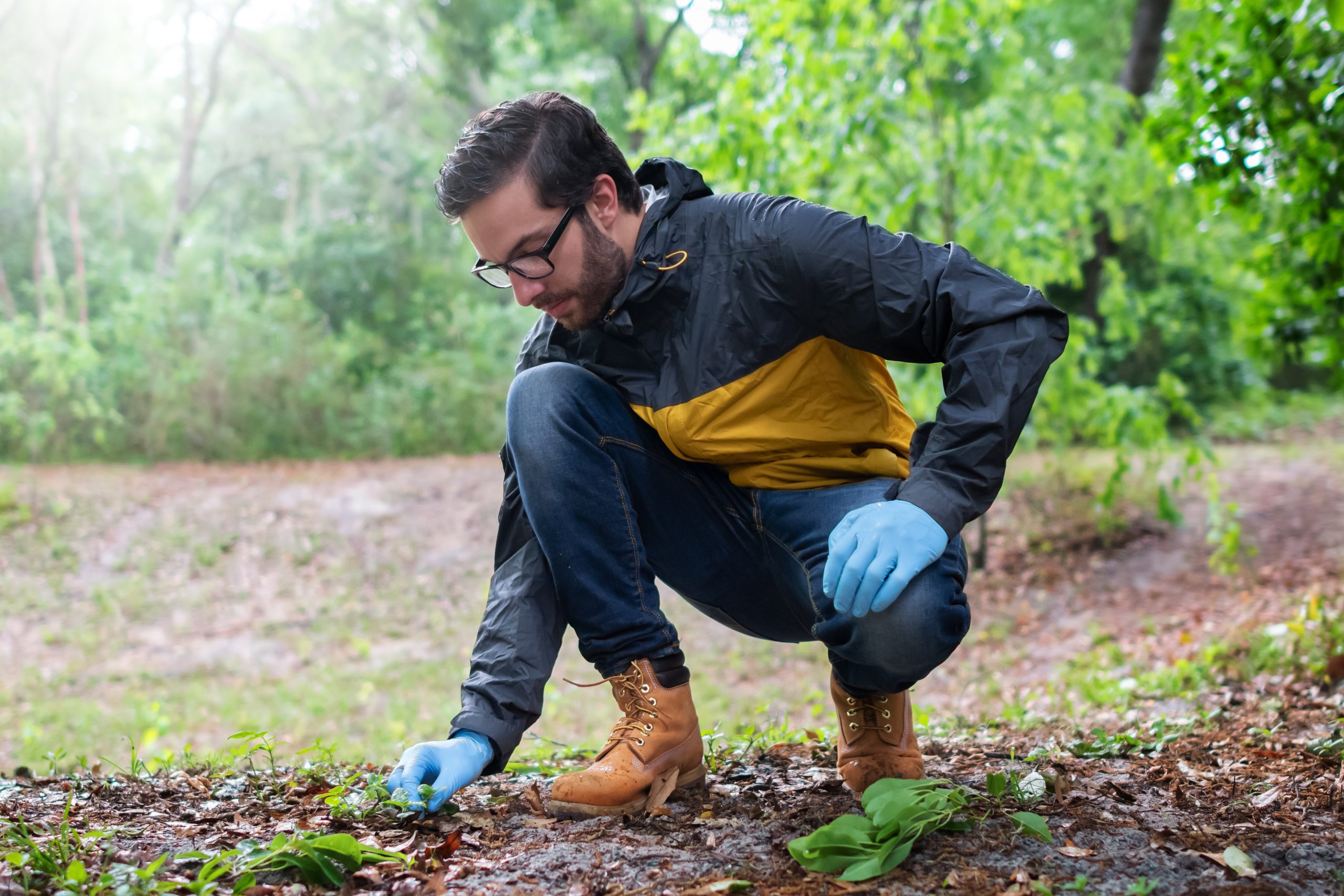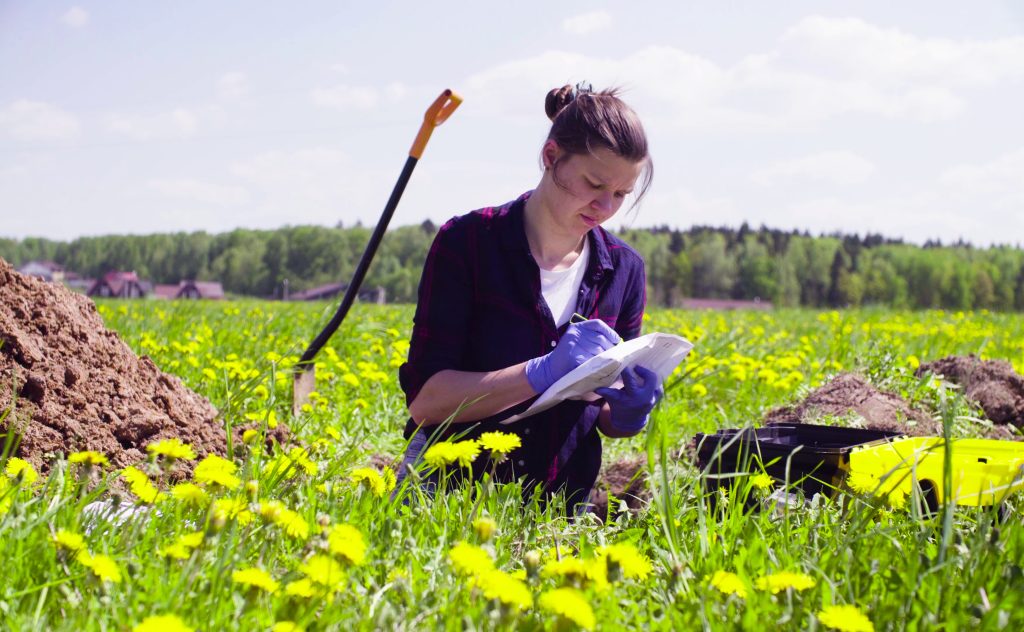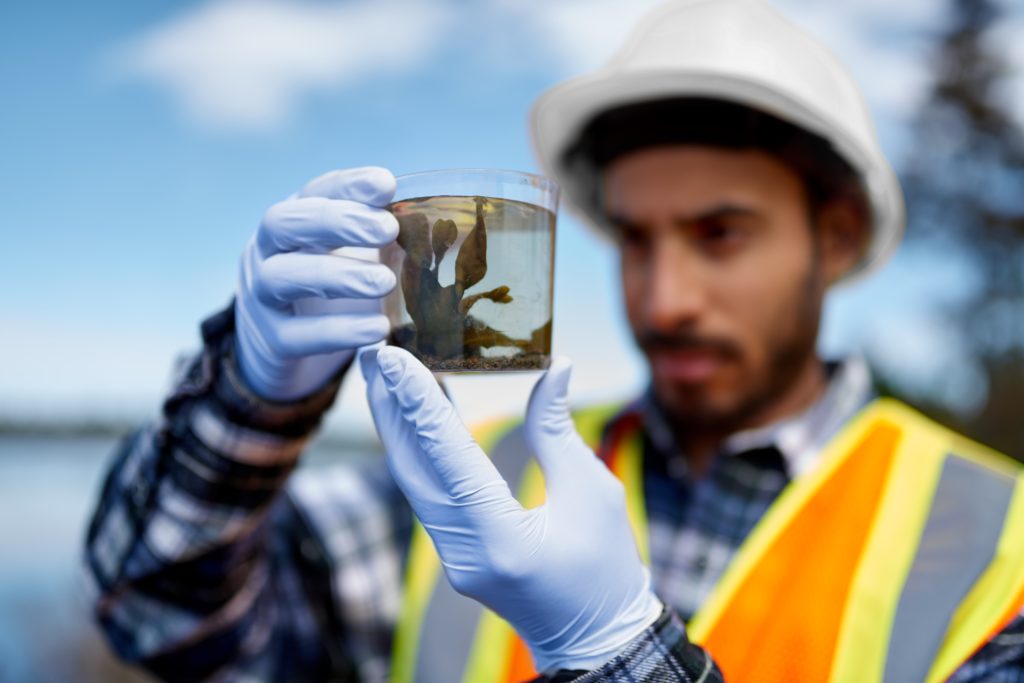
Do you have a passion for the natural world? Do you hate seeing the environment threatened? If this sounds like you, a job as a conservation scientist might be your career path.
Conservation science is one of the top 10 degrees for green industries. These are industries that are friendly toward the environment. As a conservation scientist, your job is to improve the quality of important natural land resources. These include:
- Forests
- Parks
- Rangelands
- Soil
- Water
But becoming a conservationist requires specific training and skills. There are steps you need to follow to land a job as a conservation scientist. From choosing a major to getting a job, this article explores what you need to know about the path to becoming a conservation scientist.
Read on for information on how to become a conservation scientist, what conservation degrees are the best ones to choose, and what conservation majors schools offer.
What is a Conservation Scientist
A conservation scientist develops plans for conservation. They come up with ideas on how to conserve resources, such as minerals or natural habitats. Conservation scientists also oversee conservation efforts for federal government agencies and landowners to help them protect the environment.
Conservation scientists are leaders and researchers. Conservation scientists advise others on conservation efforts. Their job is to manage projects and lead research studies. They spend their days working with farmers, ranchers, and private landowners to help them improve conservation efforts. With farmers, they help improve production. They inform other forest and conservation workers on controlled burns and seedling plantings.
Below we discuss what does a conservationist do. We also discuss the role of a conservation scientist.
What Does a Conservation Scientist Do
Conservation scientists perform many tasks, but their primary goal is to protect, manage, and preserve natural resources. A conservation scientist supervises conservation land managers and conservation workers handling:
- Destruction and habitat loss
- Forest and land use
- Forest fire suppression
- Habitat protection
- Natural wildlife habitats
- Range management
- Soil quality
The work of a conservation scientist focuses on sustainability efforts and preserving the environment. They develop management plans to preserve forest and soil quality for the federal government or private landowners. They know environmental laws and work with conservation organizations to help improve them. They also follow government regulations and use technology that is unique to the role.
Technology Used by Conservation Scientists
Daily tasks performed by conservation scientists demand special tools and technology. Forestry and conservation activities, such as managing forest lands, call for knowledge of geographic information systems (GIS). Other forms of technology used by conservation scientists include:
- Bark gauges
- Clinometers
- Diameter tapes
- Increment borers
- Geographic information systems (GIS)
- Remote sensing
Aspiring conservation scientists learn how to use equipment and tools that help them on the job while in college. Most bachelor’s degree programs offer classes where research projects include working with conservation equipment. We discuss conservation degrees and their requirements later in the article.
Specializations for Conservation Scientists
Many conservation scientists specialize in an area of interest and focus. Some work only with forest lands. Others conduct research in preserving natural wildlife habitats. Soil and water conservationists work in overseeing conservation tasks associated with soil and water preservation. Conservation scientists receive specialized training in the area they choose to work.
If you want to learn how to become a conservation scientist, read on for more information. We discuss the steps you need to take and the conservation science degrees that can help you land a job.
How to Be a Conservationist
There are certain steps to follow to become a conservation scientist. The Bureau of Labor Statistics (BLS) reports that most conservation scientists have at least a bachelor’s degree. But what is a conservation degree, and is it the only available major?
Step 1: Choose Your Major
If you want to be a conservation scientist, you need a college degree. A bachelor’s degree is the most common degree to get for this occupation.
But to be the best scientist in this field doesn’t mean you have to get a bachelor’s degree in conservation. There are many different majors you can choose that will help you qualify for a conservation scientist career.
Here are some of the most popular bachelor’s degree programs for aspiring conservation scientists.
Agricultural Science
Agricultural science is the study of agriculture. This is a broad major that covers a range of topics from animal husbandry and farming to human nutrition. As an ag science major in a bachelor’s degree program, you can specialize your studies by choosing an area of focus. Some programs let students choose a specialization while others offer electives. You can narrow the topics of your electives by choosing those you want to focus on in your career.
Specializations or areas of focus in the agricultural science major include:
- Agricultural systems management
- Food science
- Habitat protection negotiate terms and principles
- Horticulture business
- Resources management
- Wildlife habitats
Environmental Science
An environmental science major teaches you how to use theories and methods in biology and ecology to tackle environmental problems. If you care about the environment and want to understand how to protect it, this is a good major.
In an environmental science program, you take courses that cover topics like:
- Applied ecology
- Federal government regulations and the environment
- Forestry management
- Global positioning systems
You also learn different tools and techniques you can use as a conservation scientist. You work with global positioning system equipment and develop management plans enforcing government regulations.
Forestry Science
A bachelor’s degree in forestry science can help you get a job as a conservation scientist because of your specialty. You can show a potential employer that you are an expert in forestry. You learn how to regenerate forested lands and improve related natural resources. Forest and conservation workers are in demand in this field, so having skills in this area can help you qualify for a job.
Rangeland Management
The study of rangeland management can give you practical skills in conservation science. You study different topics in ecology and biology. You also learn about land management agency roles and how they impact the environment. The major teaches you how to operate conservation equipment like geographic information systems and test forest and soil quality.
Wildlife Biology
Some conservation scientists study wildlife biology. This major teaches you about natural habitat management and animal ecology. You study everything from fisheries to urban ecosystems. The major gives you knowledge you can apply to a conservation scientist job.
Step 2: Consider a Master’s Degree or PhD
If you’re interested in a research career or want to teach at the college level, you should earn a graduate degree. A master’s degree in conservation science or related subject can equip you with knowledge and expertise in the field. You can show a potential employer that you have valuable expertise they can put to work on the job.
Students earn master’s degrees in:
- Biology
- Ecology
- Environment studies or science
- Rangeland management
- Wildlife management
Step 3: Intern
Federal government regulations agencies and social advocacy organizations hire interns for conservation and preservation efforts. While in college earning your bachelor’s degree, you can take on a summer internship that gives you experience in forest harvesting or combatting invasive animal species. This is a great time to explore your interests.
Step 4: Earn a License or Certification
Some states want their foresters and conservation scientists to have licenses and certifications. You need a license to work in a certain location or field of study. Conservation workers don’t generally need a license, but foresters do.
To work as a conservation scientist, some states require certification. There are different certifications you can get, but a common one is through The Society of American Foresters (SAF). Candidates for this certification must have a bachelor’s degree from an SAF-accredited program. Candidates also have to pass a competency exam.
Another certification a conservation scientist can get is through the Society for Range Management. This professional certification requires candidates hold a bachelor’s degree in range management or closely related major. They must also have five years of work experience and pass an exam.
Characteristics You Need for Conservation Scientist Jobs
Earning a bachelor’s degree from an accredited program is the most important step to a career in conservation science. But the degree isn’t the only qualification. There are personal characteristics one should have to be a success on the job.
What characteristics does a conservation scientist need to be successful?
Analytical Skills
Conservation scientists carry out research projects and experiments. They interpret the results of their research using technology, such as computers and geographic information systems. To do the job with precision and accuracy means having strong analytical skills.
Critical-thinking Skills
Conservation scientists reach conclusions about natural resources and preservation through reason and sound judgment. Having critical thinking skills helps in establishing management plans or operating a global positioning system.
Decision-making Skills
It takes strong decision making skills to determine if certain findings will have an impact on habitat protection and other natural resources. Making quick decisions helps you carry out the requirements of the job. A conservation scientist uses geographic information systems to help them make informed decisions.
Management Skills
Conservation scientists work with conservation land managers, forest and conservation workers, and other key personnel. They oversee projects as they conduct research. It takes strong management skills to do the job right.
Physical Stamina
Because most of your work is outdoors where weather is unpredictable, you should have physical stamina. Conservation scientists walk through wooded areas, climb over rocks and rough terrain, and travel distances. Environment foresters typically carry equipment to research sites. It takes physical stamina to do the job of a conservation scientist.
Speaking Skills
Good communication or speaking skills is one of the most practical skills for conservation scientists. To execute plans of action, you must speak clearly and be heard. In this job, you plan, direct, and drive a project. You manage and oversee findings. To do the job, you need strong speaking skills.
Job Outlook for Conservation Scientists
Want to work in forest harvesting? How about a career in environmental science establishing conservation efforts? Now that you know what’s a conservationist, it’s time to evaluate the job outlook.
The job outlook for conservation scientists is stable. This means that now is a good time to enter the workforce. It is also a good time to start researching conservation degree programs.
Now that you know more about the degrees in conservation science and what skills and characteristics will make you successful, you should take a look at the job outlook.
The Bureau of Labor Statistics reports a 5% growth in jobs for this occupation. Growth equals about 3,800 new jobs added to the industry each year over the next ten years. Now is a great time to become a conservation scientist. The job outlook is favorable for those with at least a bachelor’s degree.
What Causes Job Growth
Changing weather patterns and the push to develop unused land have, and will, increase costly forest fires. Prevention and suppression of fires will be the main focus for conservation scientists and foresters over the next several years. Conservation scientists will work closely with private landowners to help preserve forest lands. They will also conduct research in areas like:
- Agricultural science
- Forest and soil quality
- Forest harvesting
- Natural resources
The Bureau of Labor Statistics states conservation scientists should expect a stable job growth for the next decade.
Conservation Scientist Earnings
If you’re passionate about the natural world, and want to make a career out of that passion, you don’t have to sacrifice your earnings. The Bureau of Labor Statistics (BLS) reports the average earnings for conservation scientists is $63,750/year. The lowest 10% of earners in this occupation can expect about $40,000/year, but the highest 10% earn over $100,000/year.
How do you find the highest wages in your career as a conservation scientist? Go where the money is. This means finding the highest paid industries. According to Bureau of Labor Statistics, you’ll find the highest wages for this occupation in the following industries:
- Federal government: $77,560/year
- State government: $62,980/year
- Professional, scientific, technical services: $61,910/year
- Social advocacy organizations: $60,400/year
Highest-Paying States for Conservation Scientists
Certain states pay higher wages for soil and water conservationists and conservation scientists. In these states, people in this occupation earn higher than average wages. High-paying states include:
- Minnesota: $90,970/year
- Alaska: $89,360/year
- District of Columbia: $85,900/year
- Hawaii: $85,860/year
- Massachusetts: $85,330/year
In many of the high-paying states, you find national parks that employ conservation scientists. They also employ soil and water conservationists.
BDP Staff
March 2023
Related Resources:
- A Student’s Guide to Conservation and Environmental Science
- What’s the Best Degree Path to Becoming an Agricultural and Food Scientist?
- Ultimate Guide to Science and Engineering Degrees and Careers
- 30 Great Small Colleges for STEM Degrees



